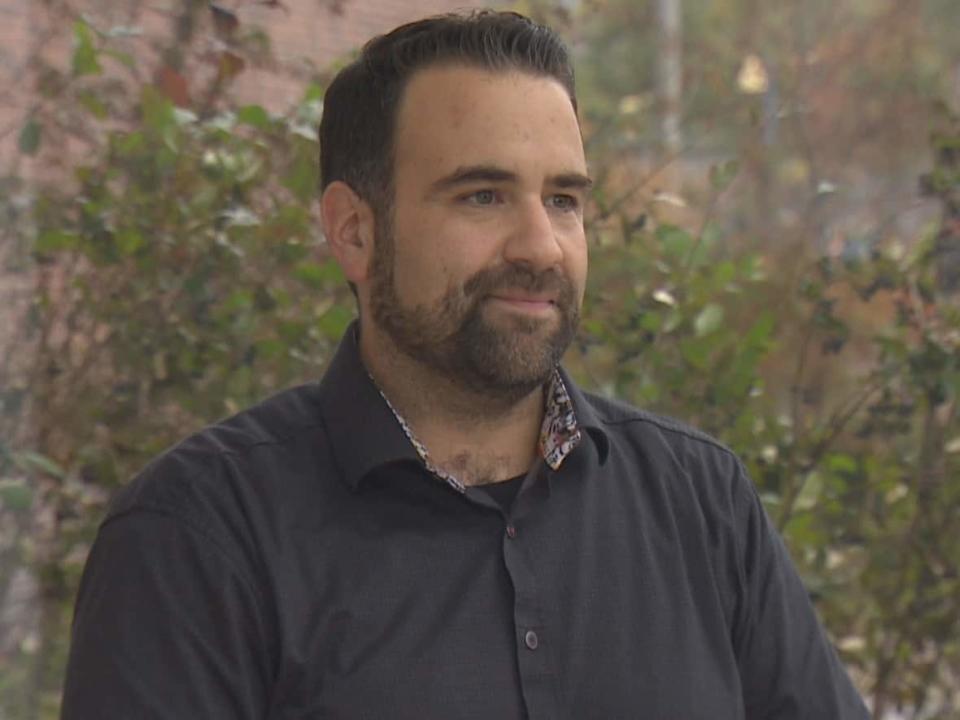Medical student scrapping plan to stay in N.L., looking at joining Canadian military

Matthew Lamont says he was planning to stay in Newfoundland and Labrador after finishing medical school, but now he's considering leaving to join the Canadian military instead because he fears its become too difficult to practice family medicine in the province.
The Newfoundland and Labrador Medical Association says almost one in five people in the province don't have a family doctor and it warns the province isn't doing enough to convince medical students to stay after they graduate.
Lamont's case supports what the NLMA saying.
The second-year medical student at Memorial University, originally from New Brunswick, said he's put down roots in Newfoundland and was planning to stay, but recently began questioning that decision and looking at other options.
Lamont sat down with CBC's Mark Quinn to talk about his concerns.
This interview has been edited and condensed for length and clarity.
Q: What are your plans for the future after you graduate?
Matthew Lamont: Well, my current plan is to join up with the Canadian Armed Forces and that's a decision I've come to quite recently. I'm originally from New Brunswick and I moved here to go to graduate school [to complete a PhD in pharmacology]. Initially, I had always planned to return home to practice medicine, but over the years that I've been here I got married, I started a family, bought a house and kind of put down roots. So, I was interested in staying in Newfoundland but I've recently become concerned with the state of family medicine in the province, and that's caused me to re-examine my options.
Q: What is it that made you change your mind?
Lamont: It has to do with the ongoing issues that have come up surrounding medicine, some of the systemic barriers that are present now for starting a practice here. These are things such as billing. Right now, family physicians bill per patient, and that can be very challenging, because some patients are much more complicated than others and require much more complex care and time.
Another thing is the patient caseload that's happening now because of the shortage. I've heard stories from family physicians about a lack of a work-life balance, and they are doing paperwork late into the night. Working unpaid hours and spending the majority of their time on the job.
Q: Did you reach out to the health department here to see if they can convince you to stay?
Lamont: I did. I reached out to Health Minister John Haggie and the NLMA just for some clarification on what's being done on these issues I've seen described. It's almost like swimming upstream is how I've seen it described to go into family practice here. And I got no response. I was met with silence. Just knowing that there was something happening, that someone was paying attention to these issues would be valuable. I'm not the first person who has expressed concerns to the government about this and has received no response. It's important to feel like you are valued, to feel your future services will be valued by the province.
Q: What do you think life will be like for family doctors who stay here?
I think if nothing is done by the government, it could potentially get worse. I've heard people are having trouble meeting the needs of their patients, especially patients with complex needs.
Q: You have a family and debt from your studies, are financial concerns part of your decision?
Lamont: It is, but I would say it's secondary, but it is definitely an issue. I have a lot of debt and I need to be confident that that debt will be adequately dealt with.
Q: Is there a financial incentive to joining the military?
Lamont: There is. They'll take care of my tuition and they will pay me a salary while I'm in medical school during residency, and of course I'll have a guaranteed job once I graduate.

 Yahoo Movies
Yahoo Movies 